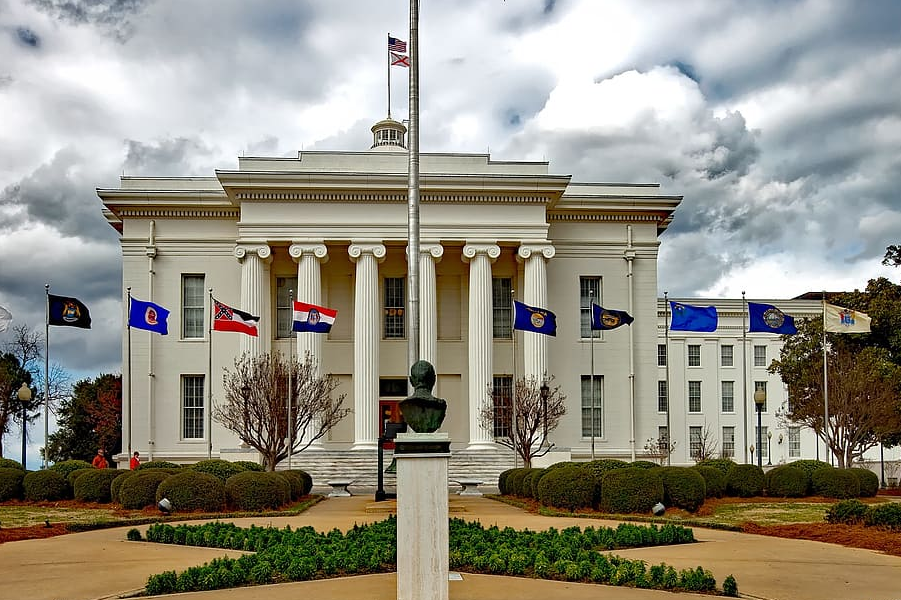In the coming weeks, the Alabama Legislature will determine how to use the state’s record-breaking $3 billion revenue surplus. Numerous proposals have been introduced to provide relief to citizens, with more options still being discussed, but do they go far enough in returning excess tax dollars to you?
At this point, the largest single measure is a $967 million tax rebate proposed by Gov. Kay Ivey as part of her supplemental budget request, though it is essentially an economic stimulus bill, not tax relief. Under her plan, single filers would receive $400 each, while married joint filers would receive a rebate of $800. House Bill 174 by State Rep. Danny Garrett (R-Trussville) and Senate Bill 87 by State Sen. Arthur Orr (R-Decatur) will serve as the vehicle for that rebate.
Neither bill has received a committee hearing, though that will change in the coming weeks. While returning nearly $1 billion to Alabamians is better than the alternative of putting that money back into state government, the state and its citizens would reap greater long-term benefits by spending that money on permanent tax cuts.
Though there has been no movement on the rebate bills to date, several bills aimed at reducing individual income taxes are making their way through the legislative process.
Orr, chairman of the education budget committee, has introduced bills to eliminate the state’s 2% tax bracket (SB47) and reduce Alabama’s top marginal rate from 5% to 4.95% over the next five years (SB48), as well as a bill to increase the tax exemption on retirement income for Alabamians 65 or older (SB49).
The three bills combined would reduce taxes by an estimated $96 million annually once fully phased in. Each bill is already approved by the Finance and Taxation Education Committee and will now move to the Senate floor for debate. Companion bills to the 2% tax bracket elimination (HB116) and reduction of the state’s top income tax rate (HB115), both by Garrett, have been approved by the House Ways and Means Education Committee.
A $96 million income tax cut would likely represent the largest permanent cut in state history and both Orr and Garrett should be applauded for their willingness to pursue relief that would benefit most Alabamians. However, considering the Education Trust Fund’s (ETF) $2.8 billion surplus, lawmakers should continue to discuss bolder reforms and return more than 3.4% of the excess tax dollars taken from citizens back to them.
Another tax relief measure getting considerable attention this year is the movement to repeal Alabama’s 4% grocery sales tax. On Tuesday, Garrett introduced House Bill 250 to slowly phase in this repeal. The tax would be reduced by 1% beginning this September. It would be reduced by an additional 1% every following two years until it is fully repealed as early as 2029.
As is often the case with legislation, the details are important. If two-year revenue growth in the ETF does not exceed 5%, then future grocery tax reductions would not take place until higher growth resumes. This is a departure from a proposal discussed by Orr last month, which would have paused reductions only if growth was below 2%, fully implementing the repeal in as little as three years. In 2021 and 2022, ETF revenue growth averaged 18.4%, but between 2016 and 2020 the average was less than 5% annually, meaning it may take years to eliminate the grocery tax.
The bill also defines food as items appearing on the Special Supplemental Nutrition Program for Women, Infants, and Children’s state food list. This is a narrower definition than previous proposals, and while it could still save taxpayers hundreds of millions of dollars each year, a broader definition could reduce taxes by more than half a billion annually, providing broader relief from near-record grocery prices.
Finally, House Minority Leader Anthony Daniels (D-Huntsville) has introduced House Bill 217, which would exempt overtime hours from being taxed as income. Though the bill is yet to receive committee consideration, it has a bipartisan list of co-sponsors, including Speaker of the House Nathaniel Ledbetter (R-Rainsville), and education budget committee Chairman Garrett. Eliminating the overtime tax could provide an incentive to work and help halt the state’s growing labor shortage.
It is a positive development that Alabama lawmakers on both sides of the aisle are presenting serious proposals to reduce the tax burden of Alabamians. None of the current legislation aimed at permanent relief is bad, but the legislature could do more with your surplus tax dollars. In the weeks ahead, lawmakers should continue to build on these initiatives and push for bolder reforms.
Justin Bogie serves as Fiscal and Budget Reporter for 1819 News. The views and opinions expressed here are those of the author and do not necessarily reflect the policy or position of 1819 News. To comment, please send an email with your name and contact information to: Commentary@1819News.com.










